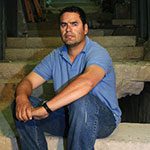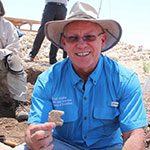
Christians have much more than faith to rely upon in standing on their beliefs. Dr. Jeremiah Johnston puts it simply: “We are truly living in the golden age of Christianity. Unlike any other religion or ‘ism’ in the world, Christianity says that it is verifiable with history. The first historian, Dr. Luke, begins his gospel this way in Luke 1:1-4:
‘Many have undertaken to draw up an account of the things that have been fulfilled among us, 2 just as they were handed down to us by those who, from the first, were eyewitnesses and servants of the word. 3 With this in mind, since I myself have carefully investigated everything from the beginning, I too decided to write an orderly account for you, most excellent Theophilus, 4 so that you may know the certainty of the things you have been taught.’”
Israeli archeologist Eli Shukron, who is credited with several major finds including the Pool of Siloam, says that, while archeology can’t prove the entire Bible, it does line up with the biblical narratives.
Dr. Craig Evans, who has taught and authored extensively on the historical Jesus and the New Testament, says, “To deny the existence of Jesus, not only do you deny literature – Christian, Jewish, Greek and Roman – but you have to ignore archelogy as well. If the writers of the gospels didn’t know what they were talking about, how did they get so much right?”
Archeologists themselves rely upon Bible passages, knowing that the places, historical figures and event accounts are reliable; they would not heavily reference the texts if the writings were myths, Evans emphasizes.
Dr. Scott Stripling adds that archeology further illumines Scripture. “We can’t deny the relationship once we’ve excavated the material,” he says.
“We have a faith that is rooted in evidence,” says Johnston.


 Special guests Eli Shukron and Dr. Scott Stripling, archeologists, and historian and professor Dr. Craig Evans, are each experts in biblical history.
Special guests Eli Shukron and Dr. Scott Stripling, archeologists, and historian and professor Dr. Craig Evans, are each experts in biblical history.
